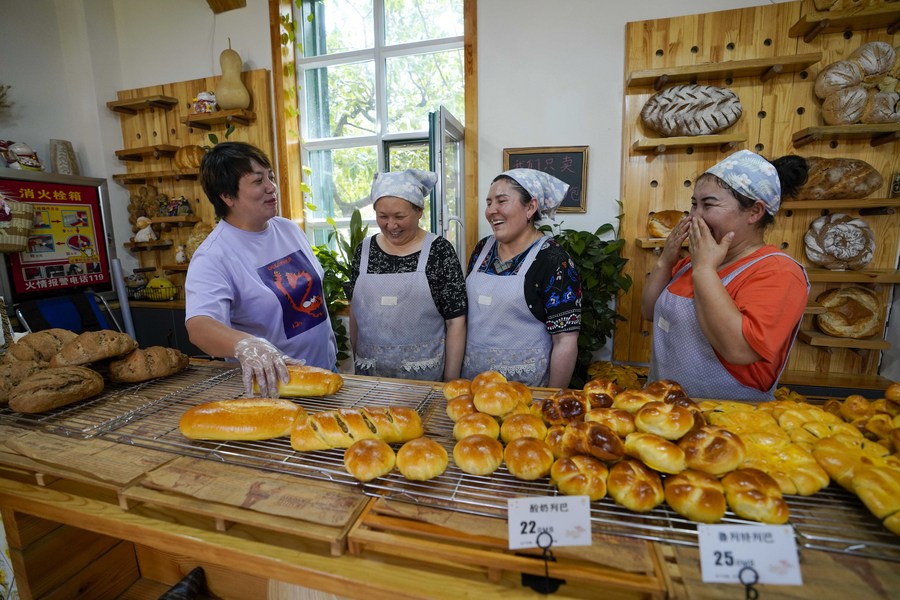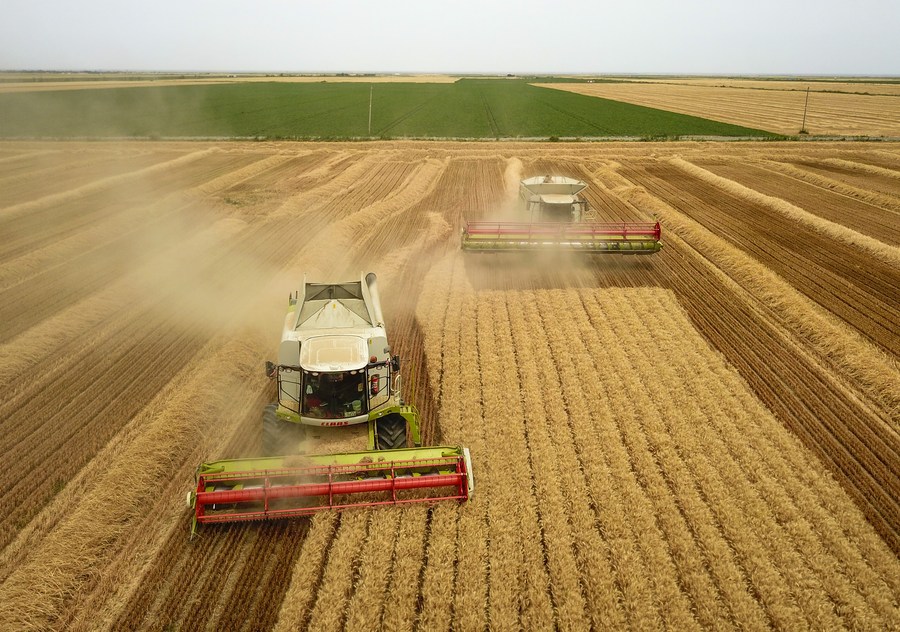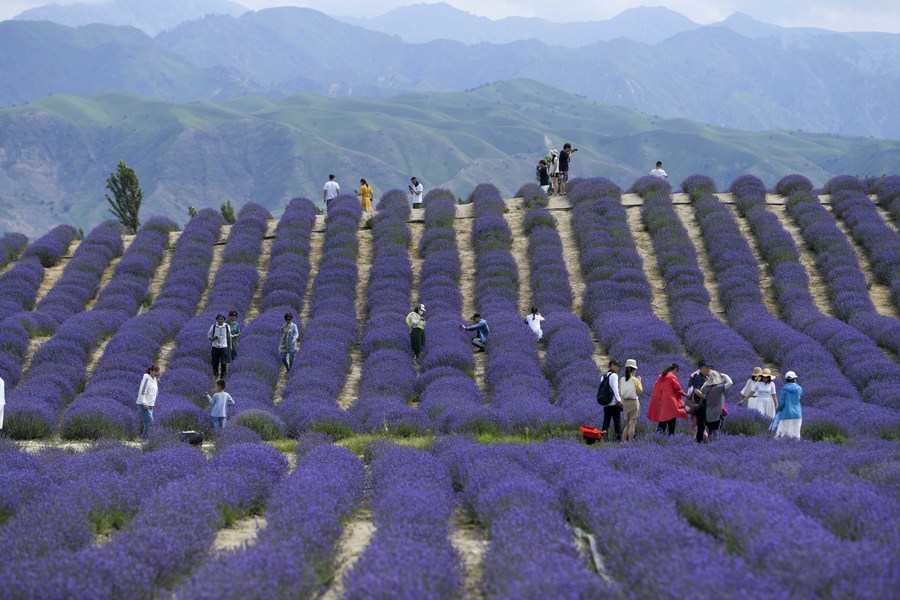U.S. sinister plot on Xinjiang stands exposed

Employees chat at a bakery in Yining, northwest China's Xinjiang Uygur Autonomous Region, June 23, 2022. (Xinhua/Zhao Ge)
Recently, the United States' so-called "Uyghur Forced Labor Prevention Act" came into effect. The "evil law" of swindling showed nothing but an extension of its plot against China's Xinjiang.
The so-called "Act" was introduced by the United States based on a lie that "forced labor" exists in Xinjiang. It is a unilateral and hegemonic move by the United States to strangle the economy of Xinjiang, depriving people in Xinjiang of their livelihoods and creating "forced unemployment" by preventing Xinjiang products from entering the international supply chain.
Like the previous so-called "Uyghur Human Rights Policy Act", the U.S. acts on Xinjiang have all been screenplay-like, in which rumors and lies are fabricated first, and the hegemonic stick of sanctions will follow.
These acts are just a few of the many lies about China told by the United States. They only expose the U.S. sinister intention to contain China's development, and such attempts are doomed to fail.
"We lied, we cheated, we stole... It reminds you of the glory of the American experiment." The notorious quote former U.S. Secretary of State Mike Pompeo made in a public discussion at Texas A&M University in April 2019 tells the world that it is a consistent practice of the U.S. to use the country's lying machine to pursue selfish interests while harming others.

Aerial photo taken on July 7, 2022 shows combine harvesters reaping wheat in a field in Qitai County, Changji Hui Autonomous Prefecture, northwest China's Xinjiang Uygur Autonomous Region. (Xinhua/Zhang Xiaocheng)
In this regard, it is becoming increasingly clear that the United States has used human rights as a guise, fabricated lies such as the so-called "genocide" and "forced labor" in Xinjiang, and introduced Xinjiang-related acts. It is an attempt to provoke ethnic tensions and undermine prosperity and stability in this ethnic minority region of China. Its goals are to smear China's image, interfere in China's internal affairs and curb China's development.
There was a period when Xinjiang was deeply affected by the combined influence of separatists, religious extremists, and terrorists, with frequent terrorist attacks. During this period, the social stability and development of Xinjiang were seriously affected, and the lives and property of people of all ethnic groups suffered great losses.
China has not only cracked down on violent and terrorist crimes in accordance with the law, but also taken measures to tackle the sources of terrorism. It has effectively curbed the momentum of the frequent occurrence of violent and terrorist activities in Xinjiang by improving people's livelihood and strengthening education on the rule of law and skill training, among other moves. The region eradicated absolute poverty in 2020.
China's governing policy in Xinjiang has been supported by more than 25 million people of all ethnic groups in the region.
The United States has repeatedly used Xinjiang-related issues to create rumors and stir up trouble, deliberately slandered and discredited the human rights situation in Xinjiang, and engaged in economic bullying and political manipulation. It has completely turned against facts and seriously violated the basic norms governing international relations. The international community has a clear view of this.
"Forced labor" is not taking place in China, but it does occur in the United States. Ironically, facts have shown that the false assertions made by the United States against China best summarize the poor track record of the U.S. itself in this regard throughout its history.
According to statistics, between 1525 and 1866, over 12.5 million Africans were shipped to the New World for forced labor. The website of the University of Denver disclosed that there are currently at least 500,000 people living under modern slavery and forced labor in the United States. Up to 100,000 people are trafficked into the United States for forced labor annually. There are approximately 500,000 child farmworkers in the world's most developed country.
 Tourists visit a lavender field in Huocheng County, northwest China's Xinjiang Uygur Autonomous Region, June 19, 2022. (Xinhua/Zhao Ge)
Tourists visit a lavender field in Huocheng County, northwest China's Xinjiang Uygur Autonomous Region, June 19, 2022. (Xinhua/Zhao Ge)
Since the end of 2018, more than 150 delegations and over 2,100 people from more than 100 countries and regions have visited Xinjiang. They have held a positive view of the achievements of Xinjiang's stable development and measures for human rights protection and counter-terrorism.
Today's Xinjiang, where the people's sense of gain, happiness, and security is increasing, is in its best period of development.
As a Uygur saying goes, "The dogs bark, but the caravan moves on." No one or force, whatever staggering lies and containment plots they resort to, can stop the Chinese people's pursuit of better lives and the rejuvenation of the Chinese nation. ■








